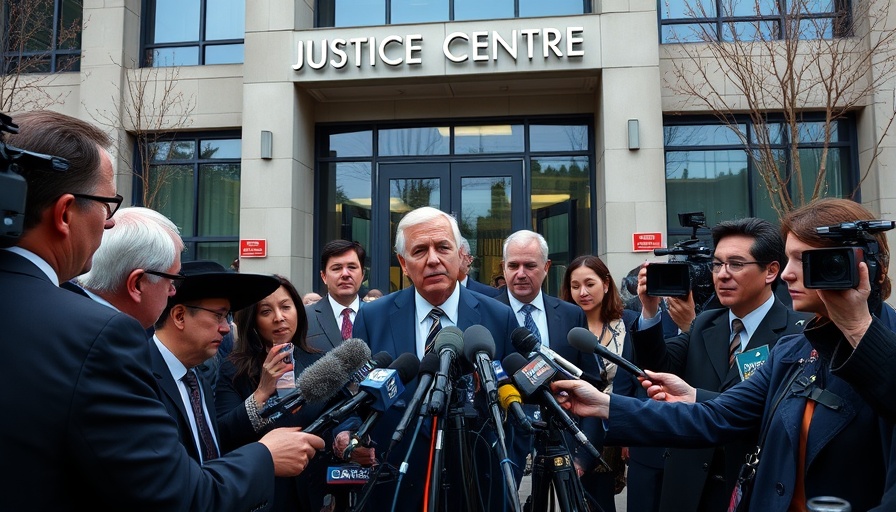
The Defamation Case That Could Change News Reporting
As lawsuits between media entities and public figures are becoming more frequent, the specifications of defamation allegations are drawing attention. The ongoing legal battle between Dominion Voting Systems and Fox News is one such case, with Dominion accusing Fox of disseminating false statements regarding the 2020 presidential election. This case not only raises questions about the integrity of media reporting but also tests the boundaries of the First Amendment.
What Did Dominion Accuse Fox of Saying?
Dominion has pinpointed a series of broadcasts and tweets from Fox News that it claims have defamed the company. In total, 20 specific instances, including commentary by high-profile hosts like Tucker Carlson and Sean Hannity, have been highlighted as damaging to Dominion’s reputation. These statements have fueled misinformation that has led some to question the validity of the election results, thereby impacting public trust in the electoral process.
Understanding Defamation in the Media
Defamation occurs when false statements are presented as facts and cause harm to an individual or organization’s reputation. In the case of Dominion, the company asserts that Fox’s broadcasts amounted to factual misrepresentations, thereby breaching journalistic ethical standards. Legal experts note that this case can set a precedent for how news agencies handle reports and the kind of evidence required when accusations of misinformation arise.
Historical Context: A New Era of Accountability?
The legal discourse surrounding media defamation traces back to pivotal cases that shaped current First Amendment rights. Landmark cases have established that public figures have a higher threshold to meet for defamation claims, a standard known as “actual malice.” Dominion argues that Fox's actions went beyond mere reporting and into the realm of irresponsible journalism. This aspect of the lawsuit may redefine accountability within media narratives.
The Public's Reaction: Misinformation and Its Consequences
The fallout from the alleged defamatory statements has vast implications for the public, especially regarding trust in media outlets. Dominion’s dissatisfaction highlights a broader societal concern about the pervasive spread of misinformation and the role of news organizations in disseminating accurate information. Public trust is fragile, and such allegations can lead to a cycle of skepticism towards the information provided by major news companies.
Future Predictions: What’s Next for the Media Landscape?
If Dominion prevails, we could witness significant changes in how news organizations report information. Experts speculate that there may be new guidelines or standards put forth to safeguard against the risk of defamation lawsuits. This case could inspire other companies and individuals to reconsider their own legal stances concerning defamation and the pursuit of justice against misleading media portrayals.
Counterarguments: The Defense's Perspective
Fox News has defended itself by arguing that the broadcasts were protected under the First Amendment, asserting that the company was merely reporting on claims made by others. The defense will likely highlight that the statements were opinions rather than definitive truths. This dichotomy poses an interesting debate over journalistic responsibility versus the right to report freely.
The Broader Impact on News and Information Dissemination
This case isn’t just about Dominion and Fox; it serves as a bellwether for all media outlets. With the world steeped in digital information, the decisions made in this case can influence how stories are crafted and shared globally. As the media continues to engage with public discourse on information accuracy, they may adopt best practices that prioritise truthfulness, reducing the potential for future litigations.
Final Thoughts: Engaging with Media Responsibly
The ongoing legal battle between Dominion and Fox News encapsulates crucial discussions around media integrity and accountability. As consumers of news, it is vital to engage critically with the information presented to us on all platforms. Staying informed and vigilant encourages media to uphold higher standards and fosters a more informed society.
As the case develops, it will be essential for audiences to observe and understand the implications it has on the future landscape of journalism, misinformation, and the rights of the press.
 Add Row
Add Row  Add
Add 



Write A Comment